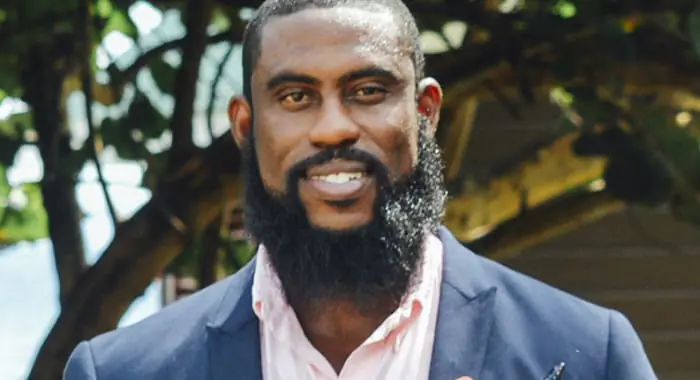Guide Stars Lessons: One high, a lifetime of peril.
We are teetering on the brink of a crisis. Our youth aren’t just walking a fine line, they’re flirting with disaster, and we’ve been silent for too long. The fast-approaching holiday season may bring excitement and parties, but beneath the surface, too many of our young people are playing a deadly game. They’re mixing dangerous cocktails of drugs, altering their brain chemistry, and gambling with their futures as if they’re invincible. Let me speak directly to the youth of Saint Vincent and the Grenadines. You might feel like you’ve got it all under control, but every time you mix alcohol and weed (a hazardous combination known as crossfading) you’re causing serious damage to your brain. Crossfading isn’t just a “buzz” or a “good time”; it’s a ticking time bomb that messes with your judgment, shatters your reflexes, and wreaks havoc on your emotions in ways that can leave lasting scars.
When you mix alcohol with weed, you’re not just stacking one effect on top of another — – you’re triggering a complex chemical reaction that intensifies the impact on your brain. Consuming alcohol before cannabis increases the concentration of THC (the active psychoactive compound in weed) in your bloodstream. This surge of THC overwhelms your brain’s endocannabinoid system, which is vital for regulating mood, memory, and judgment. Simultaneously, alcohol impairs the neurotransmitters that help you think clearly and control impulses. The combined effect isn’t just making you feel extra buzzed; it’s significantly disrupting your cognitive functions. Your ability to make sound decisions, assess risks, and exercise self-control takes a nose-dive. As a consequence, you’re more likely to engage in dangerous behaviors and make choices you’d never consider when sober. This isn’t a temporary thrill — – it’s a risky manipulation of your brain chemistry that can lead to lasting consequences.
I am not a gambling man, but I’m willing to stake almost everything on the high probability that this toxic mix of alcohol and weed (among others), is a contributing factor to the recent surge of violence among our youth. We’ve witnessed it — sudden outbursts of aggression, senseless brawls, unchecked rage — all originating from minds clouded by hazardous combinations. This crisis is seeping into our homes, infiltrating our streets, and jeopardizing our future. It’s a lethal cocktail crippling the potential of young lives across the globe, and Saint Vincent and the Grenadines is no exception. One reckless choice, one impulsive moment, can change everything.
Imagine being at the pinnacle of your youth, feeling invincible, and with one misstep, your entire future unravels. It’s not always the big, obvious mistakes; sometimes it’s the subtle ones — getting high before an exam, losing control during an argument, posting something online in a moment of rage. These seemingly minor choices, fueled by impulsiveness, can set off a chain reaction that spirals out of control. Suddenly, you’re not just dealing with the immediate consequences, you’re facing repercussions that could shadow you for a lifetime.
Young people today are making reckless choices with brains that aren’t even fully developed yet. The frontal lobe (the part that controls decision-making and self-control) doesn’t mature until around age 25. Now imagine throwing alcohol and weed into that mix. It’s like rewiring a house while the electricity is still on, a disaster waiting to happen. By altering their brain chemistry, teens are stripping away their ability to think clearly, and the chaos that follows is inevitable.
Your brain betrays you the moment these drugs collide. That sharp, rational voice inside your head? Silenced. Your ability to weigh consequences? Gone. When you crossfade, you’re essentially numbing the part of your brain that protects you from making reckless, life-altering decisions. The control center, the very thing that keeps your thoughts, actions, and instincts in line— starts to break down. What’s happening? The signals that guide your behavior are scrambled beyond recognition. Your brain can’t tell right from wrong, danger from safety. By the time you realize it, you’ve already crossed the line, and there’s no undoing the damage. Of principal note is this reality: when you mess up, you bear the full responsibility for your actions. You can’t stand before the Magistrate and say you were crossfaded.
When I think back to my own days in high school and college, my peers and I, we made mistakes, sure, but we never glorified drinking strong rum, especially not in the way it’s happening now (Marijuana was treated like a cancer in those days). Today, 15-year-olds are throwing back bottles of 84.5% overproof rum like it’s nothing, with a joint in the other hand, as if that’s just part of the routine, and we’ve just stood by and let it slide. We know this is the reality, yet we keep our mouths shut, too afraid of judgment, too scared to speak up. That fear of stepping in is exactly what’s destroying our youth. We’ve become passive, and our passivity is feeding their recklessness. It’s not going to fix itself. We’ve let them down by sitting back when we should’ve been stepping up, showing them how to make better choices. We can’t afford to keep failing them like this.
The time has come to call it what it is— too many of us, especially older men who should know better, have become visibly upholding to the chaos our young people are drowning in. Some of us are sitting back, watching these kids make dangerous, life-wrecking choices, and say nothing. Worse yet, some of us tolerate it, turning a blind eye, offering a silent nod of approval because, “well Is man he-ah-try play.” You’re not just avoiding responsibility— you’re abandoning it. We are supposed to be the example, the voice of reason, the ones guiding these young men away from disaster, but instead, we stand-by, drink in hand, while they spiral. We let them self-destruct while “ketching kicks” on the sidelines, pretending it’s not our problem. But it is your problem, its our problem, and our inaction is as dangerous as the reckless behavior we refuse to confront.
To overcome this challenge, we must move beyond judgment and indifference. Our response must stem from genuine compassion and a commitment to guide our youth toward a better future. Parents and guardians, your patience is vital, don’t give up on them, even when the road gets tough. It’s not simply telling them they’re wrong or making them feel like outcasts. Bystanders, your approach matters too. Instead of standing by or casting blame, step in with empathy and understanding.
Renowned St. Lucian poet and playwright Derek Walcott once said, “Break a vase, and the love that reassembles the fragments is stronger than that love which took its symmetry for granted when it was whole.” This is where we stand with our youth, they may seem broken, scattered by poor choices and recklessness, but it’s through the love and guidance we offer that they can be made stronger. The love that rebuilds them, the care that corrects their course, is what will shape them into individuals who are resilient and wise beyond their years. Our responsibility is not to scoff at their mistakes but to gather the fragments and show them they are still whole, that they can be even greater than before.
We need to show them that true love means stepping in when they’re heading toward destruction. Not by turning a blind eye or downplaying the danger, but by being firm and relentless in showing them we care enough to intervene. They need to know that their lives are worth more than a temporary high, that the future holds more promise than a moment of recklessness. If we don’t, we risk losing them, not just to the substances they’re abusing, but to the consequences that will follow.
Love them enough to save them from themselves, or lose them to the silence of our indifference.





